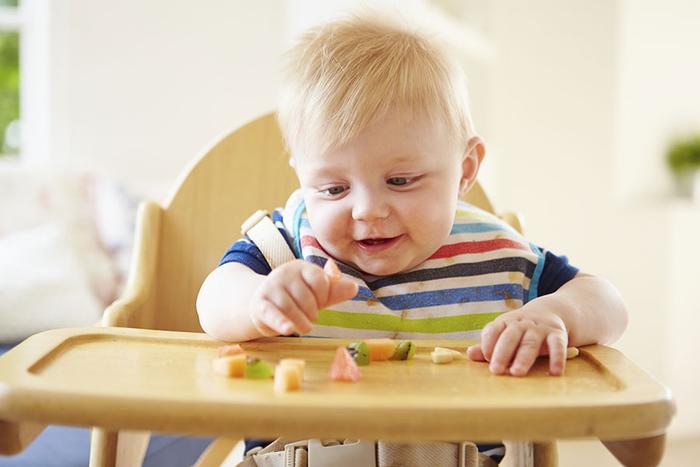A Physical Anthropologist Asks Her Study Subjects to Report How They Breast Feed Their Babies

An increasing number of parents are choosing to follow the baby-led weaning approach, where babies mature enough for solid foods are allowed to self-feed.
Now, new research finds babies who feed themselves solids are no more likely to choke than babies who are spoon-fed purees.
Lead researcher and associate professor of Child Public Health at Swansea University Dr. Amy Brown told ConsumerAffairs the study found that, although babies in the baby-led group were self feeding solid foods, they were not at a higher choking risk than those being spoon-fed special pureed baby foods.
No higher risk of choking
The rise in popularity of the baby-led weaning approach has risen concerns for those who believe babies will choke. However, the research suggested that babies who graduate from pureed baby food to solids are no more or less likely to choke.
For the study, more than 1,000 women reported how they gave their baby solid foods, what foods they offered, and whether their baby had ever choked while eating. Ultimately, finger foods did not appear to carry an increased risk of choking.
"This study provides further support, in a large sample, that allowing babies to feed themselves from six months of age is not an increased choking risk compared to traditional methods of giving babies solid foods," Brown said.
Potential benefits
How parents choose to introduce solid foods into their child's diet is a personal choice, but Brown says the baby-led weaning approach has plenty of potential benefits.
This approach encourages parents to wait until the recommended six months to introduce solids, then take a hands-off approach and let babies eat at their own pace and stop when they are full.
Babies are also given a chance to play with their food -- which Brown says can benefit their development in several ways.
"At first glance this might seem messy and a potential waste if they drop it, but actually it's a great learning experience for them," she explained. "They are learning what foods feel and smell like and having fun mastering getting them to their mouth which is a great way for them to hone their fine motor skills."
It can also make family mealtimes easier and more relaxed, she added, since parents don't need to think about spoon-feeding the baby while eating their own meal.
Guidelines for safety
For parents who decide to go the baby-led weaning route, there are a few safety guidelines to follow.
First, look for signs of readiness. Your baby should be able to sit up well in a highchair and keep their head steady so they will be in a good position to eat. Babies should also have the ability to pick up food that is placed in front of them and bring it to their mouth.
"They will have the ability to chew from around six months but it might take them a little time to get used to it, but this is fine," Brown explained. "Weaning is about learning as much as it is nutrition.
Other pointers:
- Don't put the food in their mouth. "Babies are skilled at chewing and swallowing finger foods as long as you let them put the food in their mouths themselves," Brown says. "There is a temptation to do it for them, but you shouldn't do this as you might place it too far in which might cause them to choke."
- Let babies pick. Put some solid foods on a tray in front of your baby and let them select what they want to eat. Foods about the size of your finger, such as a soft cooked carrot or piece of broccoli, are about the right size, she says.
- Avoid certain foods. Hold off on giving your child whole nuts until they are five years old. Also avoid hard foods that a baby could break off in a small amount in their mouths and accidentally swallow, such as hard apple slices or carrot sticks. Also avoid foods like popcorn or marshmallows which could get stuck in a baby's throat.
- Be smart with seasonings. Don't be tempted to add salt or sugar to the food, but spices are fine. "Babies often really like them," says Brown.
The most important part of feeding your baby is to be responsive to your child's needs and go slowly, Brown says. It's crucial to follow your baby's lead; don't try to get them to eat more if they indicate they are full. And no matter how you feed your baby, always stay in the room and watch them.
The full study has been published in the Journal of Human Nutrition and Dietetics.
Source: https://www.consumeraffairs.com/news/study-suggests-babies-self-feeding-does-not-increase-choking-hazard-010218.html

0 Response to "A Physical Anthropologist Asks Her Study Subjects to Report How They Breast Feed Their Babies"
Post a Comment